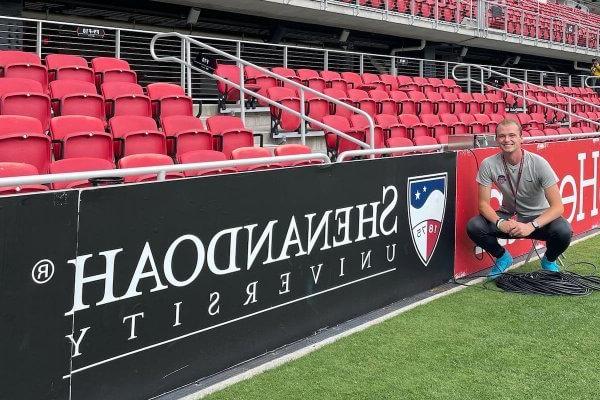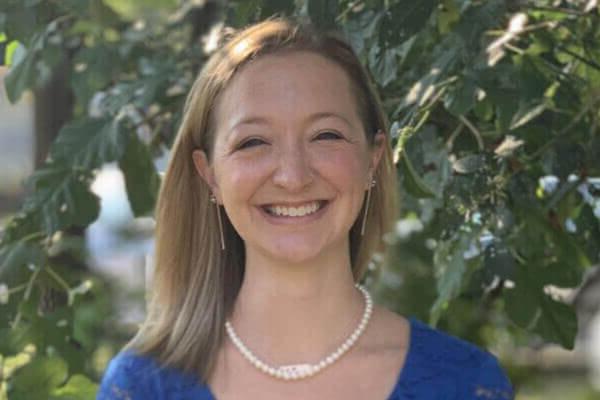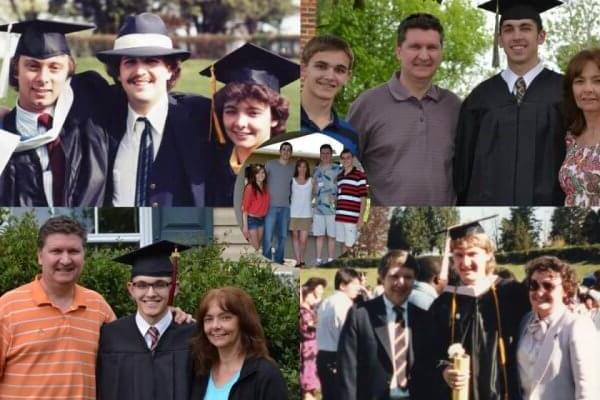Psychology: The Other STEM
Psychology is the science of mind and behavior—we study them wherever they’re found—self, others, technology, education, health professions, culture, biology, business, counseling, and more.
I highly, highly recommend Shenandoah University to anyone looking for a high-quality, customizable education led by supportive and accommodating staff that go out of their way to ensure the success of each individual that steps foot in their classroom.
Heather Jones ’22 | Bachelor of Science in Psychology/Bachelor of Music in Music Education
Learn More About This Program
Our program provides a solid grounding in and understanding of psychology. Classes seek to bring material to life by encouraging you to make the material relevant to your own experiences. The variety of courses and flexibility of our major allow you to tailor your studies to personal interests and goals guided by faculty who will advise you on degree requirements, course work and career planning.
Shenandoah enabled me to double major in two fields I’m very passionate about, while preparing me to further my education in a graduate program of my choice. With practical experiences in my classes, such as working on the local crisis hotline with Dr. Bragdon’s Clinical Helping Skills course and working as a High Performance Coaching Intern with the Washington Spirit, my majors have prepared me for my future career through experiences that expand beyond the textbook.
Patrick Manveal ’23 | Bachelor of Science in Psychology/Bachelor of Science in Exercise Science (Coaching, Biology, and Physiology minors)
Minor in This Program
Requirements for the Psychology Minor (18 Total Credit Hours)
PSY 101 General Psychology class (3 credits)
- All electives must be at or above the 200 level
- At least 3 of 5 electives must be at or above the 300 level
- At least 3 of 5 electives must be completed at Shenandoah University
- 1 elective may have a non-PSY prefix. This elective may be EXSC 350, BA 307, PSCI 333, or a course approved by the psychology department chair.
Declaring A Minor
Shenandoah students work with their Academic Adviser to declare a minor. Academic Advisers will continue to work with students to ensure that they fulfill all of the requirements to complete the minor.
Incoming students should not indicate their intended minor on their Shenandoah application. Applications are for intended majors only.
NOTE: Psychology minors have to be approved by the psychology department chair before they have completed 75 credit hours.
To apply, complete this Etrieve form.
I double majored in Biology and Public Health with a minor in psychology. I paired these two majors together because my specific interest is in the spread of infectious microbial diseases. I minored in psychology to have a better understanding of human thought processes and behavior.”
Abigail Pilcher ’21 | Biology & Public Health double major with a Psychology minor
Internship Possibilities
You can earn course credit for your resume by taking part in internships (i.e., practica) in the community or conducting research. They are not required for Psychology, but are strongly recommended. To be eligible, students need to be in good academic standing. Our practica are designed to provide students with the opportunity to apply information gained in the classroom and to obtain further knowledge and skills. Practica also allow students to demonstrate their abilities, hone their interests, prepare for graduate school and/or make a difference in the community.
Practica Locations
Winchester Rehabilitation Center
In this practicum, students shadow neuropsychologists at the Winchester Rehabilitation Center as they evaluate and treat patients with a wide variety of brain injuries and disorders. This site is open to psychology majors planning to work in human services (e.g., psychology, OT, PA, nursing). Completion of either PSY 360 or BIO 232 is required prior to placement. Faculty contact: Laura K. Zimmermann
Winchester Department of Social Services
Winchester Department of Social Services (WDSS) provides child protective services, foster care, adoption, and adult services. Students completing this practicum will be paired with a senior member of the WDSS team and be involved in the completion of child protective services investigations and assessments; interviewing clients; attending courtroom hearings; participating in ongoing case management including service planning, brokering, and monitoring services; and/or documenting services and progress. The student will receive weekly face-to-face supervision for a minimum of one hour to assist in processing their experiences. The student must be able to handle a fast-paced environment that requires cultural competence, self-awareness, open-mindedness, resilience, commitment to personal and professional growth, social perspective-taking, and ethical responsibility. Faculty contact: Wendy Carlson
Grafton Integrated Health Network
Connected Communities
Head of the Class Dog Training
Winchester Community Mental Health Center
Shenandoah Area Agency on Aging Winchester Senior Center
The Winchester Senior Center is operated by the Shenandoah Area Agency on Aging as a non-profit community center for active older adults. The practicum student would lead and evaluate programs oriented around social interaction, along with assisting staff and volunteers with day-to-day duties. Completion of PSY 324 is recommended prior to placement. Faculty contact: Scott King
Adult Care Center of Northern Shenandoah Valley
The Adult Care Center of the Northern Shenandoah Valley is a non-profit day program for adults who are coping with physical and cognitive challenges caused by Alzheimer’s Disease, stroke, or other conditions, and require supervision or assistance. The practicum student would have options to observe and participate in a variety of research-oriented activities relating to the management of the Adult Care Center. Broadly defined, these activities include market research, quality assurance, needs assessments, and data analysis. Completion of PSY 324 is recommended prior to placement. Faculty contact: Scott King
The Recovery Connection
The Recovery Connection (TRC) provides residential treatment for women diagnosed with Substance Use Disorder. The licensed facility is located in the city of Winchester in a single-family residence that serves eight women and that aligns with the American Society of Addiction Medicine’s 3.1 Level of Care. Clients receive both clinical treatment and recovery support services that are trauma-informed, person-centered, and strength-based.
A practicum student’s experience at TRC would include a wide array of experience in the industry, to include but not limited to: shadowing clinical / peer / mutual aid groups, individual therapy & department meetings; training in proper documentation and regulatory guidelines; assisting direct care staff in the implementation of day-to-day tasks; developing opportunities for targeted project(s); collecting and analyzing data for quality assurance and performance improvement; and interacting with clients and hands-on experiential learning with the Substance Use Disorder population. Faculty contact: Rodney Bragdon
Concern Hotline
Concern Hotline is a nonprofit agency that facilitates a 24-hour crisis intervention hotline. The crisis hotline is staffed by community volunteers who receive extensive training. The practicum student will have options to participate in a variety of activities related to the management of the Concern Hotline. These include assessment data management and reporting, volunteer training, networking with other agencies, and fundraising. The practicum student will also have the option of undergoing the training to become a listener for the hotline. Faculty contact: Rodney Bragdon
Clarvida
Students placed at Clarvida have exposure to a wide variety of human services programs. These programs include home-based services of behavior treatment for individuals with intellectual disabilities and who are on the autism spectrum and Intensive In-Home for treatment of individuals with mental health diagnoses including but not limited to mood disorders, anxiety, depression, suicidal ideations, and ADHD. The practicum will include observation of both programs, however, a majority of the time will be spent with behavior treatment services (intellectual disabilities, autism spectrum disorder). Practicum participants will gain exposure and insight into assessments and evaluations, specific treatment modalities, and overall care coordination through real-time observations of clinicians and participation in clinical supervision. This site is open to psychology majors interested in Applied Behavioral Analysis and related fields. Completion of PSY 330 prior to placement is required. Faculty contact: Rodney Bragdon
Directed Research
Directed research offers students an opportunity to work on a project currently being conducted by a faculty member in the psychology department. Interested students should talk with their advisers.
Independent Research
The independent research practicum offers the student an opportunity to develop and conduct their own research in the field of psychology under the direct supervision of a psychology faculty member. Interested students should talk with their advisers.
Career Possibilities
Psychology majors learn marketable, job-related skills, such as critical thinking, valuable interpersonal skills, problem solving skills, knowledge of human behavior and an understanding of research procedures and how best to answer psychology-related questions. Oftentimes, students graduating with a degree in psychology pursue careers in business, government, education and health-related organizations.
Psychology has many areas of specialization, such as:
- social psychology
- personality psychology
- developmental psychology
- cognitive psychology
- school psychology
- clinical psychology
- counseling psychology
- educational psychology
- industrial-organizational psychology
- forensic psychology
- cross-cultural psychology
- health psychology
- biopsychology
Some specific careers that are well-suited for students studying psychology include:
- social worker
- behavioral specialist
- substance abuse mentor
- teacher
- special education specialist
- guidance or academic counselor
- criminal investigator
- animal trainer
- corrections officer
- occupational therapist
- retail/sales marketing personnel
- public relations worker
According to the U.S. Bureau of Labor Statistics (2020/2021), employment of individuals with degrees in psychology is expected to grow as fast or faster than the average through 2029.
Classes
Requirements For The Psychology Major (42 credit hours total)
Required Core Courses (18 credit hours)
- PSY 101 General Psychology
- MATH 207 Introduction to Statistics OR PSY 207 Quantitative Analyses in Psychology
- PSY 208 Research Methods I
- PSY 308 Research Methods II
- PSY 222 Lifespan Development
- PSY 310 Abnormal Psychology
Biological Bases of Human Behavior
Take at least 1 of the following courses (3 credit hours)
- PSY 313 Sensation and Perception
- PSY 316 Cognitive Psychology
- PSY 360 Biopsychology
Foundational Influences on Human Behavior
Take at least 1 of the following courses (3 credit hours)
- PSY 312 Personality Psychology
- PSY 330 Behavior Modification
- PSY 355 Social Psychology
Human Development
Take at least 1 of the following courses (3 credit hours)
- PSY 321 Infancy and Childhood
- PSY 322 Adolescent Development
- PSY 324 Adult Years and the Aging Process
Counseling and Clinical Applications
Take at least 1 of the following courses (3 credit hours)
- PSY 327 Psychology of Death
- PSY 328 Autism Spectrum Disorder
- PSY 411 Foundations of Counseling and Counseling Theories
- PSY 412 Clinical Helping Skills
- PSY 414 Posttraumatic Stress Disorder
Open Electives
Take four courses of electives (12 credit hours)
Electives can include unused choices from above categories, any psychology course at or above the 300 level, and any one of the courses below:
- BA 307 Introduction to Management to Management and Organizational Behavior
- EXSC 350 Sport and Exercise Psychology
- PSCI 333 Political Psychology
Learning support services are available to all students in every course at Shenandoah. Free peer tutoring with a student who has previously succeeded in the course is available for any course across the university. The Writing Center is available for every stage of the writing process from thesis development to proofreading and bibliography assistance. The Math Enrichment Center is available for math and science assistance. Professors and Academic Advisors across the university also have office hours and open door policies to ensure Shenandoah students succeed academically.
Psychology Organizations
The psychology department has two organizations devoted to students interested in psychology-related issues. The Psychology Club offers you a chance to explore areas of psychology outside the classroom. Meetings generally include guest speakers, group discussions, volunteer work in the community, and a chance for interaction with Shenandoah alumni. Psi Chi is the international honor society that recognizes psychology majors and minors with outstanding academic records.
Psi Chi International Honor Society
Psi Chi, the International Honor Society for Psychology, was founded in 1929 to promote excellence in scholarship and the advancement of psychology as a science. Today, over 1,000 senior colleges and universities, including Shenandoah University, have active chapters of Psi Chi, composed of graduate and undergraduate students pursuing psychology as their major. Membership in Psi Chi is based on student academic performance, and therefore is by invitation only. For more information, please contact the Psi Chi faculty advisor, Dr. Wendy Carlson at wcarlson@joyerianicaragua.com.
Psychology Club
The Shenandoah University Psychology Club was established in 2001 to create a forum for students to discuss psychological issues, learn about the various fields of study and careers within psychology and help the community. Activities include guest speakers, group discussions on selected topics, community service projects and fundraisers. For more information, please contact the Psychology Club faculty advisor, Dr. Rodney Bragdon at rbragdon@joyerianicaragua.com.
Join the Honors Program
The Honors Program is a multidisciplinary Honors Program for students who are curious, creative, self-motivated, and eager to engage in their education and community.
Not only do Honors Program students partake in honors courses that emphasize collaboration, service, and communication, but they will also have the opportunity to develop aspects of the program based on their own interests and goals. By participating in the Honors Program you will acquire the tools, knowledge and experiences necessary to make meaningful contributions to your community – whether it be globally, locally, or specific to your life’s work. You will have access to unique courses, exciting experiences and a community of peers and faculty who never stop asking questions and striving for excellence.
My favorite part of being a member of the SU Honors Program is having a community of hard-working and determined students who all want the best education possible. I have always been a good student, but by having Honors classes and meeting other Honors students it pushes me to keep growing and striving for greatness in my academics and in my life overall!”
Ruth Castellano ’25 | Bachelor of Science in Psychology, Minor in Music
Application Information
Shenandoah University works on rolling admissions and accepts applications throughout the year. Applications are reviewed individually and holistically.
Submit your application, review required admission materials, and find our admissions standards.
Shenandoah has always been a large part of my life, since I’ve lived in Winchester most of my life. After visiting to look at the academic values and options for my major, I found that all of the professors I met wanted to make sure each individual student was successful and happy. The small campus makes Shenandoah special. When it came down to college decision time, it only made sense to go somewhere that was an extension of home.”
Anna-Claire Hart ’20 | Psychology Major with a Spanish Minor
Meet the Faculty
Imagine participating in interesting conversations led by engaging professors who’ve already done what you dream of doing. You’ll be in a small class — the average class size is approximately 14-16 students — with professors who know your name, care about your success and provide advice as you pursue your academic and career goals.
My favorite thing about my major is the professors. All of the psychology professors are fantastic and really are passionate about what they do. They all genuinely want you as a student to succeed and will do what is needed to make sure that you do.”
Emily Rice ’24 | Psychology
 Meet Laura Zimmermann, Department Chair & Professor of Psychology
Meet Laura Zimmermann, Department Chair & Professor of Psychology
Study Abroad
Make studying abroad the highlight of your college experience! Whether you go for a year, a semester, or just a few weeks. You will never forget learning in another culture! The Center for International Programs is here to help you plan your study abroad experience. Start your planning early to ensure the courses you complete abroad count toward your degree and you graduate on time.
Global Experiential Learning (GEL) Program
The Global Experiential Learning (GEL) Program offers Shenandoah students a short-term, faculty-led, study-abroad experience for academic credit. These short-term, credit-bearing, faculty-led programs are offered winter break, spring break, and during the summer. If a course is not within your major, it might be used as an elective.
My favorite part of the GEL trip to Uganda was getting to interact with our translators. They were both men, and about the same age as me, but had completely different lives than me. Yet we all found excitement in similar things, like tossing around a ball or Frisbee. It was just really interesting to see that even in a country and culture that is so different from where I live, I still found similarities and made friends with people that are my own age. It’s very humbling to be back. I have always been conscious and skeptical about the fact that I have so much without having had to work for it, and this trip really emphasized that for me. I grew up in a predominantly white school district where most of my classmates’ families had a lot of money, and the kids didn’t realize how lucky they were to have everything that they did. This trip certainly made me more aware of how much I have and made me more grateful for everything I do have.
Kyle Hooven ’20 | Psychology & Sociology double major
Study Abroad
Shenandoah University is a member of the International Student Exchange Program (ISEP), a global network of 300 universities. This partnership allows students to study for a full semester or year at other member campuses abroad. By working closely with their academic advisors and the study abroad advisor, students can take classes taught in English abroad while receiving Shenandoah credit.
Shenandoah University also maintains direct partnerships with several universities around the world. These relationships allow students from SU to study abroad as exchange students and students from these universities to study at SU. All partner universities offer courses taught in English.






